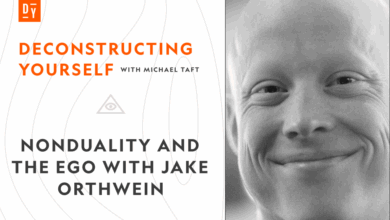Are You Looking at the World Through a Dark Glass Window?

Love removes the darkness

Through a Glass Darkly
When I was a girl our family went to church every week. Mum used to give my two sisters and me a scripture memory test on the way. When we’d answered enough correctly, she gave us a Mintie to suck, so our breaths smelled sweet as we talked with other church members.
‘What does 1 Corinthians 13:12 say?’ she’d ask, swiveling in her front passenger seat to check we were paying attention as we sat in a row in the back, knees together, hands in laps, hair sprayed with Curly Pet.
For now we see through a glass darkly; but then face to face:
now I know in part; but then shall I know even as also I am known.
Looking back, I didn’t know what it meant, but I liked the imagery it invoked.
I’d imagine peering through a dark, smokey sheet of glass, until I could finally see what was on the other side. A garden, perhaps. Or a range of blue mountains, a fountain, a tangle of leafless tree branches. At first, I couldn’t see these things. Then, slowly, in my mind’s eye, the sheet of glass would turn clear, and I could.

Love Removes the Darkness
I haven’t gone to church for years, but today I lift my old Bible from the bookshelf, dust it off, and turn to I Corinthians 13, regarded by Christians as the Love Chapter. I re-read the whole chapter, wondering if, now that I’m grown up, I will understand more fully what Paul meant.
Paul starts off by saying that if we don’t have love, we’re as distracting and annoying as a clanging cymbal, of no use to anyone, even if we pack our days with good deeds.
Then he lists some of the qualities of love:
Love . . . is kind . . . is not easily provoked . . . thinks no evil . . . endures all things . . . never fails . . .
Then he wrote in verse 10:
But when that which is perfect is come, then that which is in part shall be done away.
In the context of the chapter, that which is perfect is Love.
Then he wrote about growing up (spiritually) and followed that with the scripture that appealed to my imagination as a child:
For now we see through a glass darkly, but then face to face . . .
To me, one implication of these verses is that we see through a glass darkly when we don’t have love.
When we love, we see – face to face – what is really there in front of us.
It’s only when we embody love that we see clearly What Is.
When I don’t live with love as the basis of all I do, think and say, I am looking at the world through a dark glass, my view clouded by personal mental clutter and noise.
When I think about my repetitive, stale thoughts, I realise they’re not built on a foundation of love. They’re not kind, calm, patient, forgiving and so on. Most of the time I’m looking at the world through a smokey glass that is smeared with old thoughts, cultural conditioning and uncontrolled emotions.
It’s only when I embody love that I come face to face with Now.
This verse used to be one of my mother’s favourites.




